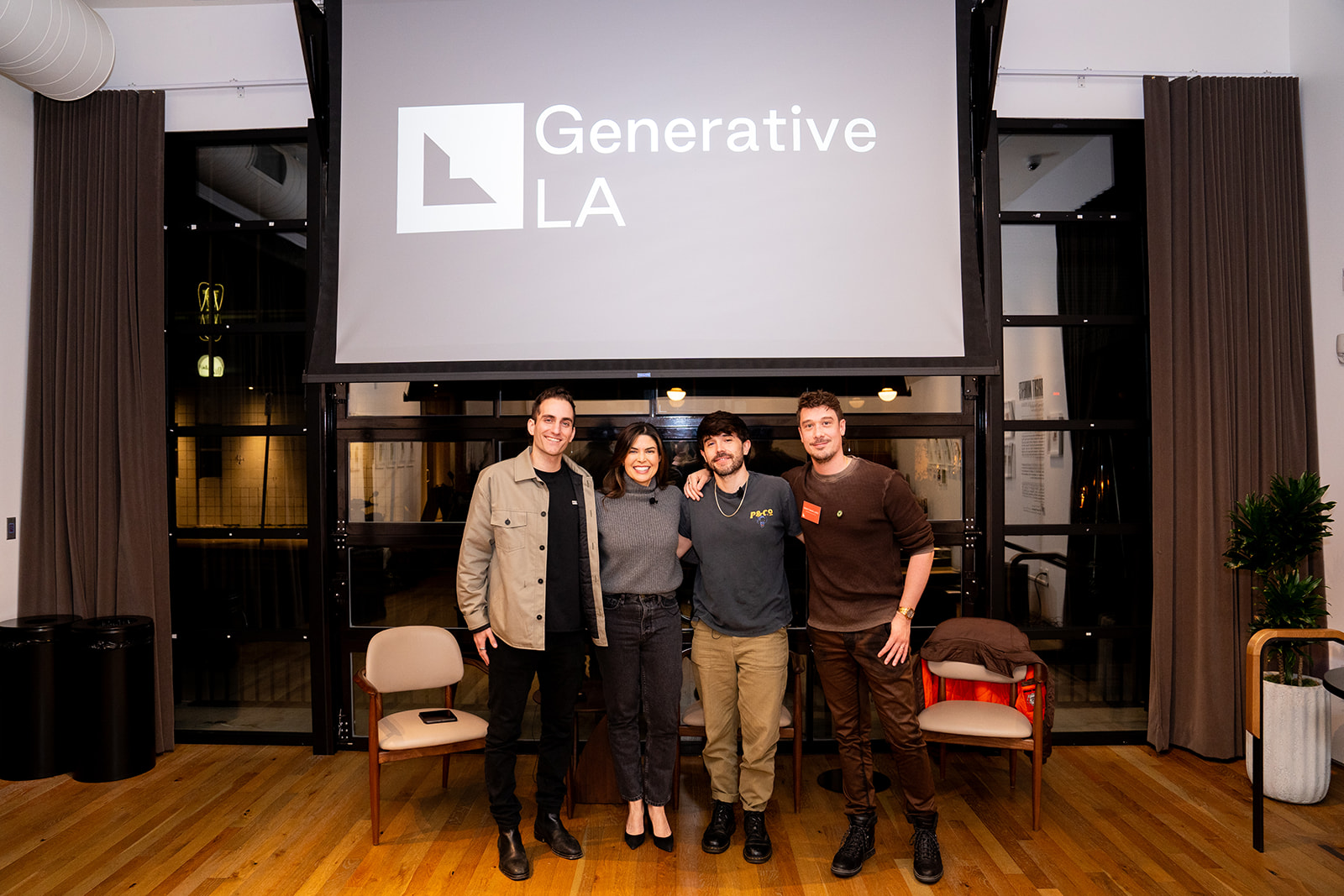03/19/2024
Gaming
Generative AI and The Future of Interactive Media
Key insights from Disney Accelerator’s Bonnie Rosen and Garden’s Stephen Bell at Lightspeed’s latest #GenLA meetup

Lightspeed recently hosted our latest Generative AI meetup in Los Angeles, featuring a fireside chat with Bonnie Rosen, the General Manager of Disney Accelerator, and Stephen Bell, the Co-founder and CCO of the gaming studio Gardens. Lightspeed has been investing in AI for over a decade, and launched the meetups to bring together founders, builders, and investors working in the generative AI space to share ideas and learn from each other.
The fireside chat was moderated by LA-based Lightspeed Partner Moritz Baier-Lentz and the group discussed three main areas where AI presents unique challenges and opportunities. Below is a slightly edited transcript highlighting key takeaways from the conversation.
Recently there has been heightened concern about AI taking over creative jobs. Going forward, what does the coexistence of AI and human creativity look like?
AI’s greatest potential will come as an enabler of human creativity, not as a replacement for it. According to Rosen, this is Disney Accelerator’s mindset when selecting companies for the program. “Every single company we selected was chosen because it was a tool that could be wielded by the incredible creative minds at Disney.” She then recalled a lengthy conversation she once had with a group of creatives and executives about “how you can’t just use AI to create a voice,” because, simple as it might seem, there are so many different ways a character might say any given phrase. For example, something as seemingly unassuming as “Let’s go,” depends so much on the specific emotion called for from that character, in that specific moment of a particular the story—subtle human expression and unpatterned context that AI struggles to match. For that reason, AI is best used as a tool to expand our creativity, not replace it.
Bell, for his part, was skeptical of recent predictions that AI will replace creative workers. The technology is impressive but still prone to flaws such as hallucinations (a phenomenon in which a large language model’s perception of nonexistent patterns creates a nonsensical output). “[AI] lacks intention and desire,” he said, “which is the foundation of art and craftsmanship. I think you need real skilled operators and developers to be able to edit and refine the results that you get out of generative systems.” His highest hope for AI is that it will free humans from the most boring parts of their work, allowing them more time to focus on the creative parts.
With AI, what advantages do incumbents have over startups, and vice versa?
It should surprise nobody that big incumbents have significant advantages obtaining and processing data; often they’re the service providers in cloud computing and other functions needed for these tasks. In terms of gaming, incumbents like Epic or Roblox have the financial resources to acquire other companies that will help them grow and improve. However, incumbents are often “playing not to lose” while “startups are playing to win and can [therefore] afford to go all in,” according to Baier-Lentz. Or, as Bell described it, incumbents are “less incentivized to take risk” and sometimes stuck in a rut of only making incremental improvements. This creates an opening for startups that are laser-focused on solving problems in very specific, niche areas. This is the best way for them to capture market segment and perhaps become that next unicorn.
How can companies navigate the line between generative AI’s potential threats versus its opportunities?
This is a particularly important question for companies like Disney, which have vast catalogs of valuable IP vulnerable to theft by non-licensed users who use that material in ways that hurt the value of the original IP. Rosen pointed out the important service that copyright laws provide: “To protect human ideas and originality…it’s just mind-bogglingly beautiful, just that concept of how important it is to protect, honor, and value that.” According to both Rosen and Bell, it’s crucial to get ahead of new AI technologies and use them to expand access and exposure to IP while preventing it from being stolen and illegally profited from. Rosen said, “We are very much on the side of making sure that IP is honored, that every child, whether they’re from this generation or ten generations from now,” encounters the company’s IP in the ways that its creators originally intended.
Interested in attending a Generative Live event? Sign up here to receive notifications about future meetups, and be sure to listen to the Generative Now podcast, where AI builders talk about how they’re creating the future.



